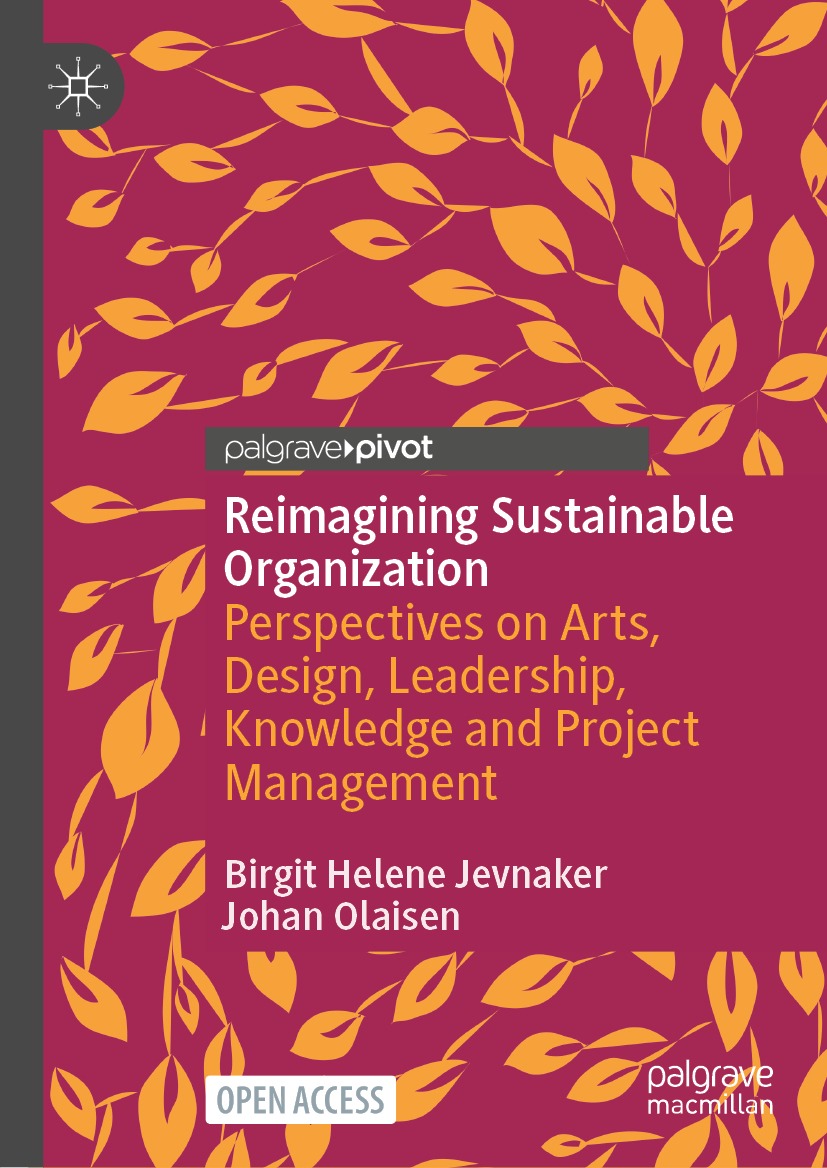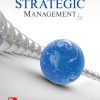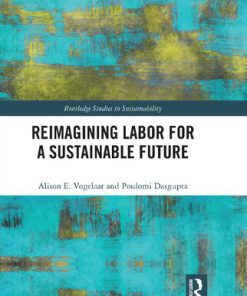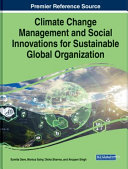Reimagining Sustainable Organization 1st Edition by Birgit Helene Jevnaker, Johan Leif Olaisen ISBN 9783030962104 3030962105
$50.00 Original price was: $50.00.$25.00Current price is: $25.00.
Reimagining Sustainable Organization 1st Edition by Birgit Helene Jevnaker, Johan Leif Olaisen – Ebook PDF Instant Download/Delivery: 9783030962104 ,3030962105
Full download Reimagining Sustainable Organization 1st Edition after payment

Product details:
ISBN 10: 3030962105
ISBN 13: 9783030962104
Author: Birgit Helene Jevnaker, Johan Leif Olaisen
This open access book reimagines a deeper sustainability in dynamic organization. Offering multiple perspectives on arts, design thinking, leadership, knowledge and project management, Reimagining Sustainable Organization addresses our need for thinking and coping differently when facing the many unknowns of real-life enterprises in society.
Drawing on process philosophy, real-world case studies, and examinations of business practices as well as management research, the authors explore knowledge creation towards reimagining sustainable organization. The book includes frameworks and conceptual tools as well as insights for further explorations.
This book will be of interests to students, scholars and teachers, and practitioners who are studying sustainable organization, greener management, leadership ideas, or knowledge and project management. It covers future pressing issues also for the professionals involved in co-creative work across organizational boundaries.
This is an open access book.
Reimagining Sustainable Organization 1st Edition Table of contents:
1 Introduction: Perspectives on Reimagining Sustainable Organization
1.1 Introduction: A Wake-Up Call
1.1.1 Learning with and from Young People
1.1.2 Pioneering Other, More Knowledge-Based Messages
1.1.3 Goals and Pillars of Sustainability
1.2 Conceptual Groundwork
1.2.1 Green Thinking and the Meanings of “Green”
1.2.2 Inspirations from Process Philosophy
1.2.2.1 Some Concepts for Engaging with Possibilities
1.2.2.2 Imaginative Working with Intrinsic Relations
1.2.2.3 What Perspectives and Means Can We Explore?
1.3 A Multi-Perspective Process Thinking
1.3.1 What is Knowledge—and Relevant Traditions?
1.3.2 What are Sustainability Ideas Travelling in Emergent Practices?
1.3.3 Critique
1.3.4 What is Design Projecting Distinctiveness and Co-creating Meaning?
1.3.5 Theories of Organizational Integration, Entrepreneuring and Leadership in Collective Action
1.4 Enlargening—or Shrinking—Sustainability
1.4.1 The Paradox of Green
1.5 Conclusions
References
Part I Facing the Unknown
2 Travelling Leadership Ideas as a Business Virus
2.1 Introduction
2.2 The Virus-Inspired Theory
2.2.1 Summing Up the Fragments of a Proposed General Virus Theory
2.3 Testing the Virus Through Eight Hypotheses
2.4 Empirical Methodology
2.5 Analyses of Scandinavian Travelling Viruses
2.5.1 Reflection
2.6 Discussion of Hypotheses
2.7 Conclusions
2.7.1 Limitations and Further Research
References
3 Possibilities and Missing Links in Management Research: What We Do Not Know That We Know
3.1 Introduction
3.2 Methodology
3.3 Findings on Knowledge-itis, Instrument-itis, and Problem-itis
3.4 The Aspects of the World Studied
3.5 Scientific Orientations
3.6 The Dynamics of Paradigms
3.7 Alternative Concepts
3.8 Alternative Research Paradigms
3.9 Conclusive Remarks
References
Part II Looking for Productive Practices in Real-Life Organization
4 Management as Power and Politics in Projects
4.1 Introduction
4.2 A Selective Literature Review
4.2.1 The Game Concept
4.2.2 Power
4.2.3 Micropolitics
4.2.4 Influence and Persuasion
4.2.5 The Proposal of a General Theoretical Model
4.3 Study Methodology
4.3.1 Data Collection
4.4 Findings
4.4.1 Appearance of Power and Micropolitics in Projects
4.4.2 Active Handling of Power and Micropolitics
4.4.3 How Are the Findings Related to the Actor’s Intentions
4.4.4 How Are the Findings Related to Answer the Remaining Research Questions?
4.5 Conclusions
4.5.1 Practical Implications
4.5.2 Limitations and Future Research
References
5 Understanding Practices Through an Inclusive Philosophy of Experiencing: Insights from Four Art Museums
5.1 Introduction
5.2 Theoretical Framing for an Inclusive Knowledge Philosophy
5.2.1 Deweyan Inclusive Experiential View
5.2.2 Further Inspirations from Process Philosophy—A Naessian View
5.3 Methodology and Material
5.3.1 Methodology
5.3.2 Cases Explored
5.4 Findings from Art Practices in Four Nordic Museums
5.4.1 Five Ways of Building Experiencing with Artworks
5.5 Discussion
5.6 Conclusions
5.6.1 The Importance of Place, Continuous Striving, and Ecological Thinking
5.6.2 Joy and Pain in Knowledge-Seeking
References
6 Leading for Eco-Effective Business Design: Co-creating Sustainability Development
6.1 Introduction
6.2 Perspectives on Organizational Change
6.3 Perspectives on Sustainability: Thinking and Tinkering
6.3.1 Sustainability as Action-Based Practices
6.3.2 The Roles of Leadership in Sustainable Design
6.3.3 Reflections on Organization Changes
6.4 Puzzling Example: A Strategic Design Innovation-Oriented Case
6.5 Discussion: Short-Sighted or Continued Sustainability Design
6.5.1 Tinkering and Thinking Are Intertwined
6.5.2 The Paradoxical Roles of Leadership in Making Sustainable Design
6.5.3 Requirements for Successful Proactive Change and Design Efforts
6.5.4 On Vision and Mission
6.6 Conclusions
References
Part III Advancing Theory and Practice
7 The Future of Knowledge Work: Working Smarter and Greener in the Age of Digitalization
7.1 Introduction
7.2 Propositions
7.3 Study Design and Methodology
7.4 Corporate Findings for the Future of 2030
7.4.1 The Scenarios for the Future Less Critical in the Corona Situation
7.4.2 Leadership and Organizational Structure
7.4.3 Societal Usefulness and Market Dynamics
7.4.4 Networking
7.5 Imagining the Future Corporate Systems
7.5.1 The Future as a Part of the Supply Chain
7.5.2 The Future Workplace
7.5.3 Education
7.5.4 Attitudes
7.5.5 Teamwork
7.5.6 Less Travelling Working Smarter and Greener
7.5.7 Organizational Structure and Project Work
7.5.8 The Pipeline
7.5.9 The Working Landscape
7.5.10 Working Greener
7.5.11 Future Incentive Systems
7.5.12 Leadership
7.5.13 Living Greener
7.6 Discussion
7.6.1 A Close Eye on the Future
7.6.2 Potential Integration Through Working with Developing Situations
7.7 Future Framework
7.8 Conclusions and the Way Ahead
References
8 Towards the Dynamic Arts of Reimagining Sustainable Organization
8.1 Theoretical Introduction
8.2 The Problem
8.3 Methodology
8.4 Modes of Knowing
8.4.1 Non-Representable Knowing
8.4.2 Non-Represented Knowing
8.4.3 Representable Knowing
8.4.4 Knowing and Non-knowing as a Collective Activity
8.5 Example: Munch’s Art Practices
8.5.1 Vignette 8.1 The Life Frieze
8.5.2 Vignette 8.2 The University Paintings
8.6 Towards the Dynamic Arts of Reimagining
8.6.1 Opening up for New Assumptions and Models
8.6.2 Communication, Language, and Metaphors
8.6.3 Observation and Imitations
8.6.4 The Pace of Sharing Knowledge: A Proposed Conceptual Framework
8.7 Conclusions
References
Index
People also search for Reimagining Sustainable Organization 1st Edition:
3 sustainable strategies
reimagining ngos
six(6) sustainable transformations
3 sustainable resources
reimagining resilience
Tags: Birgit Helene Jevnaker, Johan Leif Olaisen, Reimagining Sustainable Organization
You may also like…
Politics & Philosophy - Politics
Critical Perspectives on Human Rights 1st Edition Birgit Schippers
Education Studies & Teaching - Philosophy of Education
Uncategorized
Fiction - Adventure Stories & Action
Business & Economics - Management & Leadership
Climate Change Management and Social Innovations for Sustainable Global Organization Sumita Dave
Engineering - Civil & Structural Engineering
Chemistry - Chemistry - General & Miscellaneous
Coordination Chemistry Basics and Current Trends 1st Edition Birgit Weber
Romance - Science Fiction Romance
Bewitching Birgit 1st Edition by Tianna Xander ISBN B07FWB9PC9











